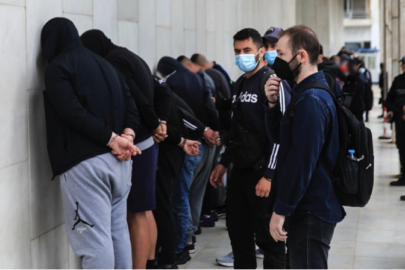Minister of Foreign Affairs, Nikos Dendias, received a phone call from his Turkish counterpart Mevlut Cavusoglu, with the latter saying he had decided to extradite a Greek citizen who is the father of one of the victims of the fatal train crash in Larissa.
The Turkish Foreign Minister “informed him about the positive outcome of the Greek request for the extradition to Greece of a Greek citizen, the father of one of the victims of the accident in Tempi “, according to a related post by the Ministry of Foreign Affairs on Twitter.
FM @NikosDendias received a phone call from #Türkiye FM @MevlutCavusoglu who informed him on the positive outcome of 🇬🇷’s request for the extradition to #Greece of a Greek citizen, father of one of the victims of the accident in Tempi (1/2) pic.twitter.com/oGXgJSt9uY
— Υπουργείο Εξωτερικών (@GreeceMFA) March 14, 2023
The “green light” of the Turkish authorities was given after talks held between Athens and Ankara, to find a solution for the father of Nikos Nalbandis, imprisoned in Turkey in the train collision in Tempi, to attend his son’s funeral.
The father of the unfortunate 28-year-old is a prisoner in a prison in Turkey and was scheduled to be released after Easter, as a relative of the family had stated.
According to information, the case of Nikos Nalbandis was discussed between Nikos Dendias and Mevlut Cavusoglu in a communication they had on Monday, March 6. Mr. Dendias had requested that the imprisoned father of the train driver who died in the crash be granted permission to attend his son’s funeral. According to the same information, the father of the unfortunate train driver will serve the rest of his sentence in Greece.
After being informed by the family of the deceased Nikos, the Greek Ministry of Foreign Affairs acted following the instructions of Nikos Dendias in order to take the necessary steps to grant permission for humanitarian reasons.
As diplomatic sources explained at the time, after the first communication from the 28-year-old’s family, the Greek consul in Edirne – following instructions from the Minister of Foreign Affairs – immediately contacted the competent Turkish prosecutor’s office and requested emergency permission to visit the Greek citizen, without complying of the weekly deadline.
What the Greek side was asking for, the same sources explained, was to grant permission, for humanitarian reasons, to the prisoner in question in order to attend the funeral procession of his son.




































